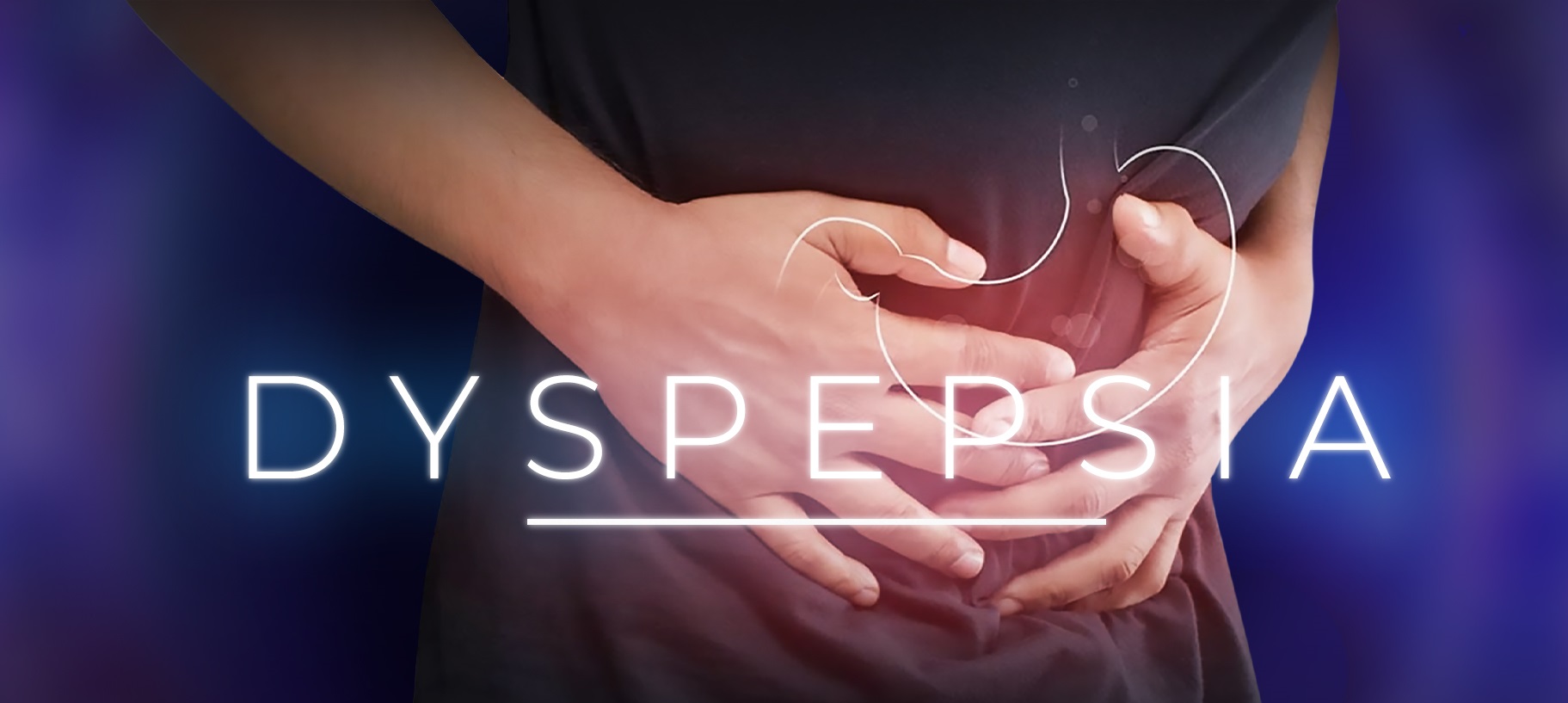Dyspepsia (Indigestion)
Overview | Possible Causes | Care and Treatment | HOME REMEDies | When to Call the Doctor | References

Overview
Indigestion- also called dyspepsia or an upset stomach- is a general term that describes discomfort in your upper abdomen. Indigestion is not a disease, but rather some symptoms you experience, including abdominal pain and a feeling of fullness soon after you start eating. Although indigestion is common, each person may experience indigestion in a slightly different way. Symptoms of indigestion may be felt occasionally or as often as daily.
Indigestion can be a symptom of another digestive disease. Indigestion that isn't caused by an underlying disease may be eased with lifestyle changes and medication.
Possible Causes
Indigestion has many possible causes. Often, indigestion is related to lifestyle and may be triggered by food, drink or medication. Common causes of indigestion include:
- Overeating or eating too quickly
- Fatty, greasy or spicy foods
- Too much caffeine, alcohol, chocolate or carbonated beverages
- Smoking
- Anxiety
- Certain antibiotics, pain relievers and iron supplements
Sometimes indigestion is caused by other digestive conditions, including:
- Inflammation of the stomach (gastritis)
- Peptic ulcers
- Celiac disease
- Gallstones
- Constipation
- Pancreas inflammation (pancreatitis)
- Stomach cancer
- Intestinal blockage
- Reduced blood flow in the intestine (intestinal ischemia)
Indigestion with no obvious cause is known as functional or nonulcer dyspepsia.
Care & Treatment
Lifestyle changes may help ease indigestion. Your doctor may recommend:
- Avoiding foods that trigger indigestion
- Eating five or six small meals a day instead of three large meals
- Reducing or eliminating the use of alcohol and caffeine
- Avoiding certain pain relievers, such as aspirin, ibuprofen (Advil, Motrin IB, others) and naproxen sodium (Aleve)
- Finding alternatives for medications that trigger indigestion
- Controlling stress and anxiety
If your indigestion persists, medications may help. Over-the-counter antacids are generally the first choice. Other options include:
- Proton pump inhibitors (PPIs), which can reduce stomach acid. PPIs may be recommended if you experience heartburn along with indigestion.
- H-2-receptor antagonists (H2RAs), which can also reduce stomach acid.
- Prokinetics, which may be helpful if your stomach empties slowly.
- Antibiotics, if H. pylori bacteria are causing your indigestion.
- Antidepressants or anti-anxiety medications, which may ease the discomfort from indigestion by decreasing your sensation of pain.
Home Remedies
Mild indigestion can often be helped with lifestyle changes, including:
- Eating smaller, more-frequent meals. Chew your food slowly and thoroughly.
- Avoiding triggers. Fatty and spicy foods, processed foods, carbonated beverages, caffeine, alcohol, and smoking can trigger indigestion.
- Maintaining a healthy weight. Excess pounds put pressure on your abdomen, pushing up your stomach and causing acid to back up into your esophagus.
- Exercising regularly. Exercise helps you keep off extra weight and promotes better digestion.
- Managing stress. Create a calm environment at mealtime. Practice relaxation techniques, such as deep breathing, meditation or yoga. Spend time doing things you enjoy. Get plenty of sleep.
- Changing your medications. With your doctor's approval, stop or cut back on pain relievers or other medications that may irritate your stomach lining. If that's not an option, be sure to take these medications with food.
When to Call the Doctor
Mild indigestion is usually nothing to worry about. Consult your doctor if discomfort persists for more than two weeks. Contact your doctor right away if pain is severe or accompanied by:
- Unintentional weight loss or loss of appetite
- Repeated vomiting or vomiting with blood
- Black, tarry stools
- Trouble swallowing that gets progressively worse
- Fatigue or weakness, which may indicate anemia
Seek immediate medical attention if you have:
- Shortness of breath, sweating or chest pain radiating to the jaw, neck or arm
- Chest pain on exertion or with stress
To book online consultation to meet our expert doctor click on the link below
Reference
- https://www.niddk.nih.gov/health-information/digestive-diseases/indigestion-dyspepsia
- https://www.mayoclinic.org/diseases-conditions/indigestion/
- https://patient.info/digestive-health/dyspepsia-indigestion






































































































